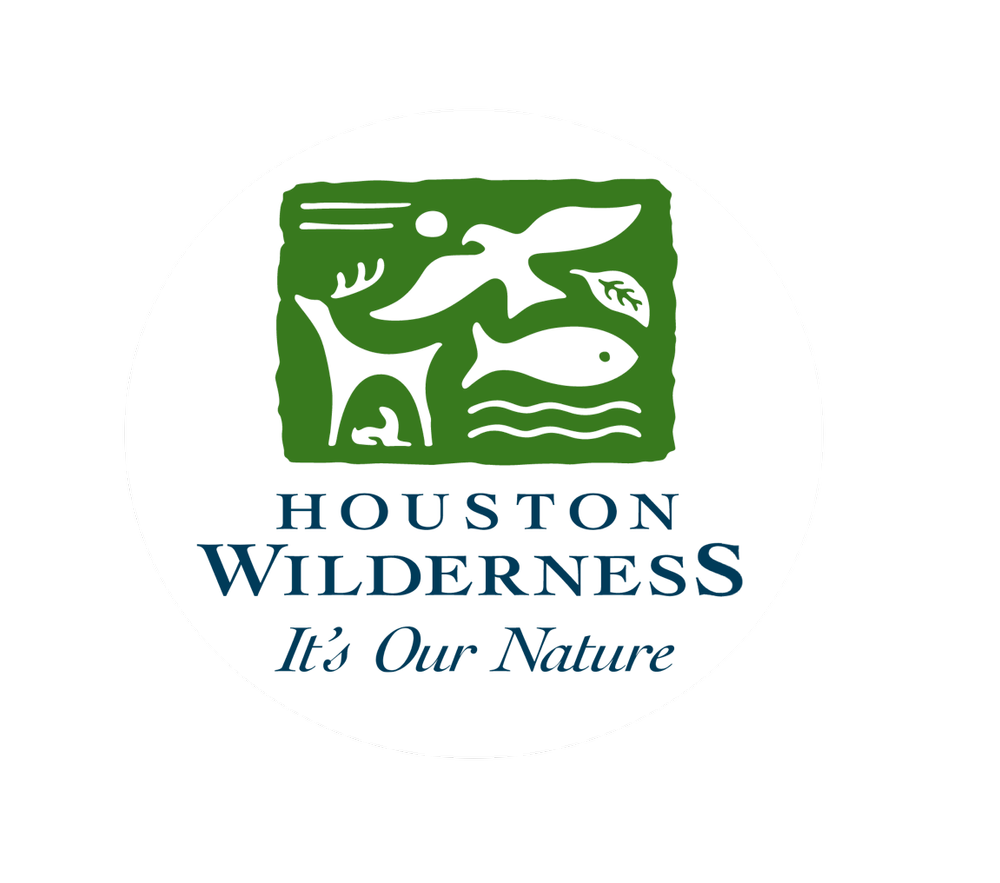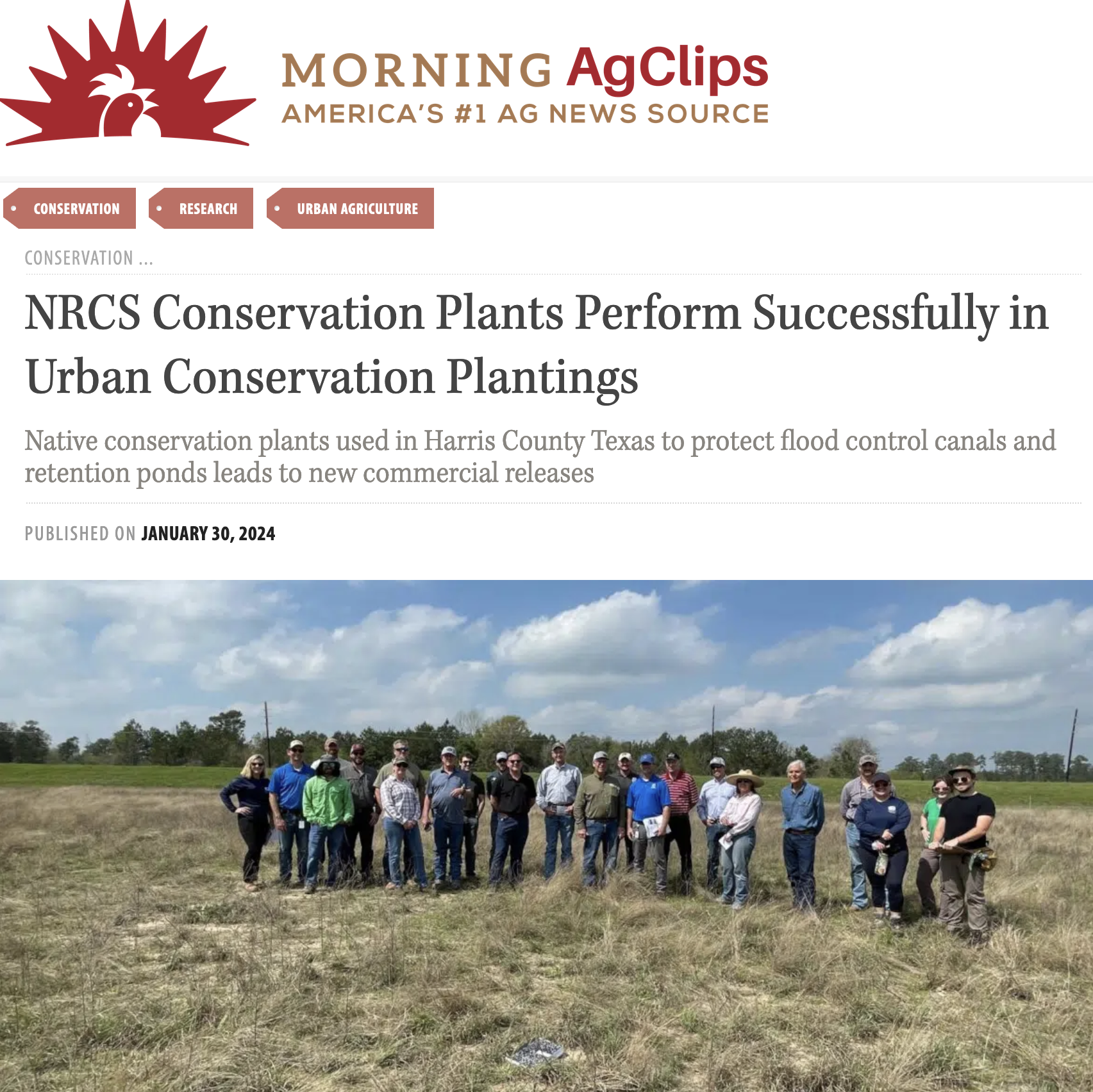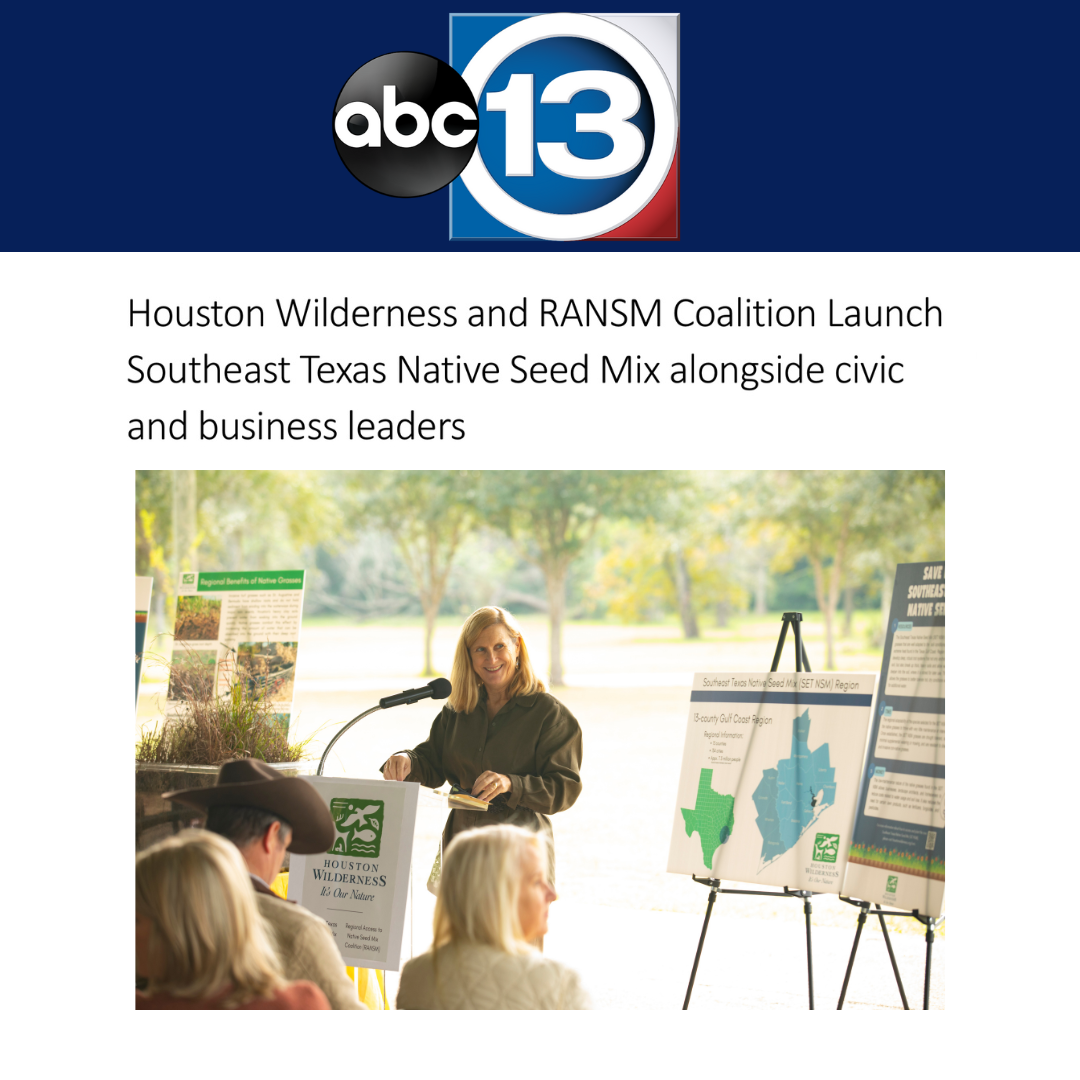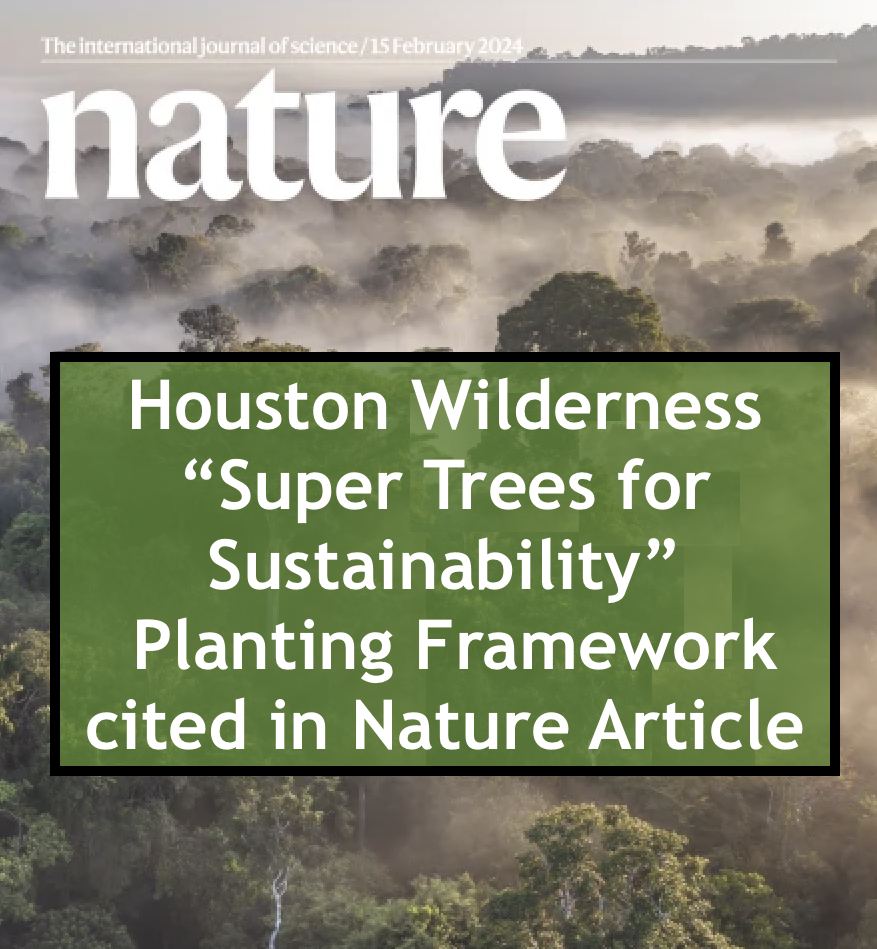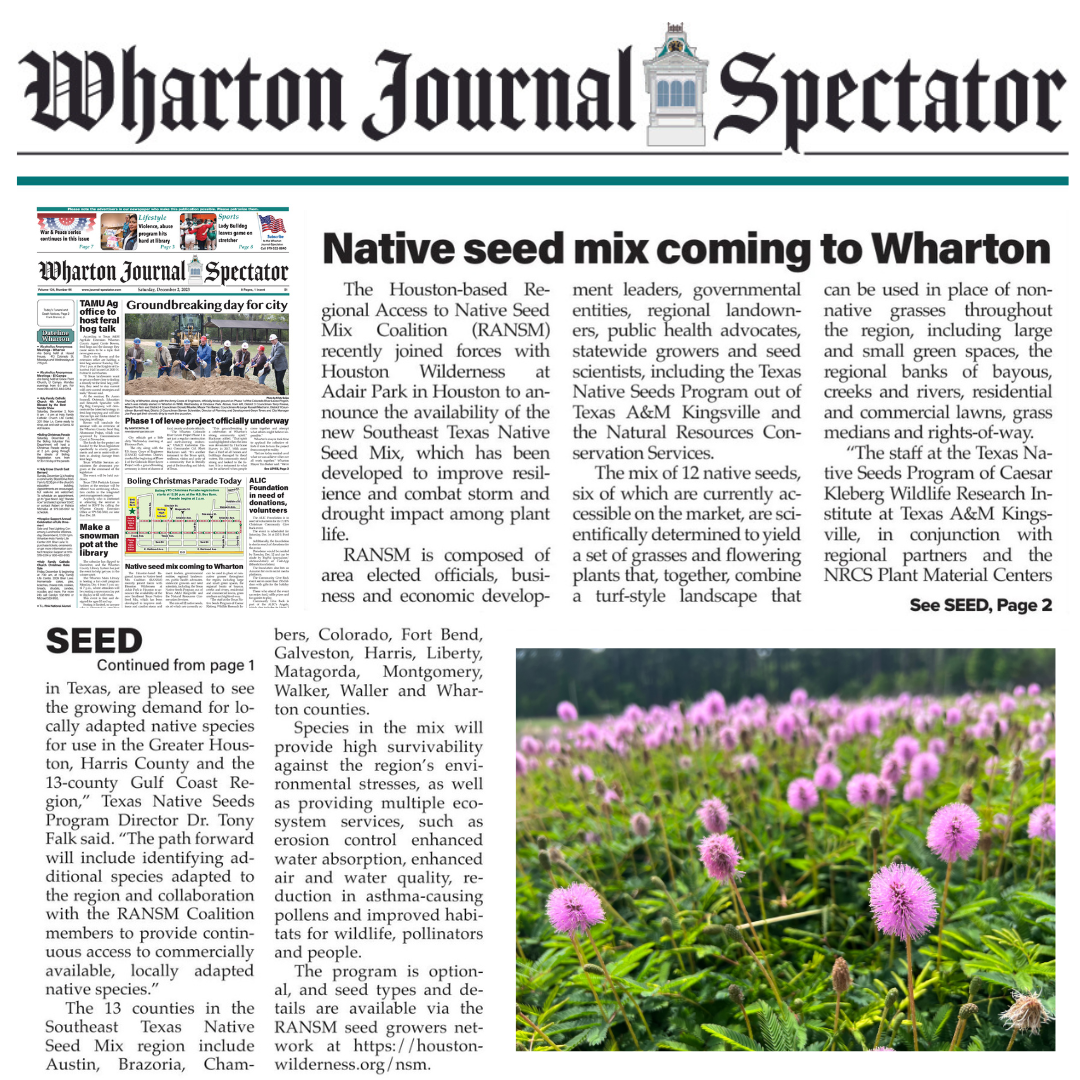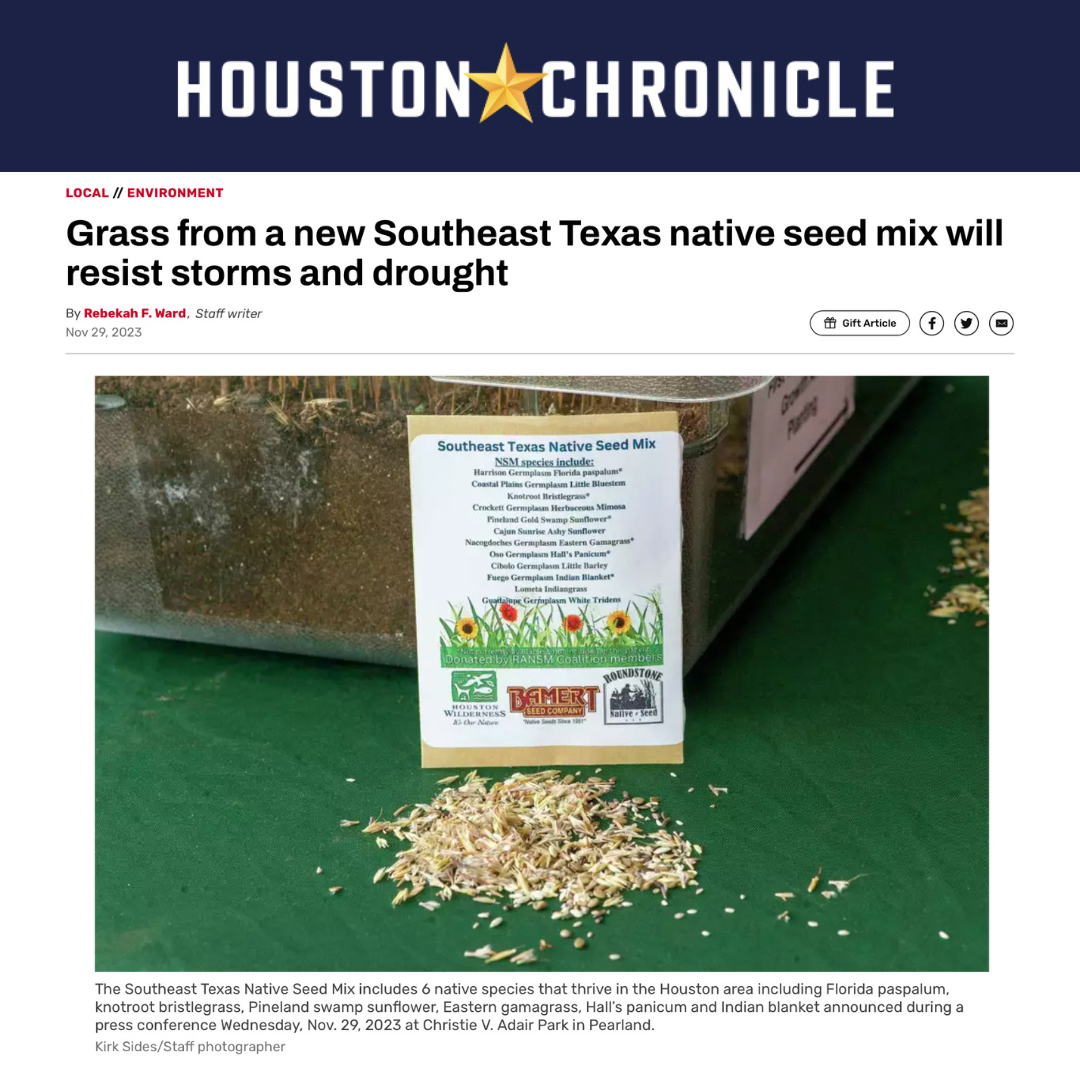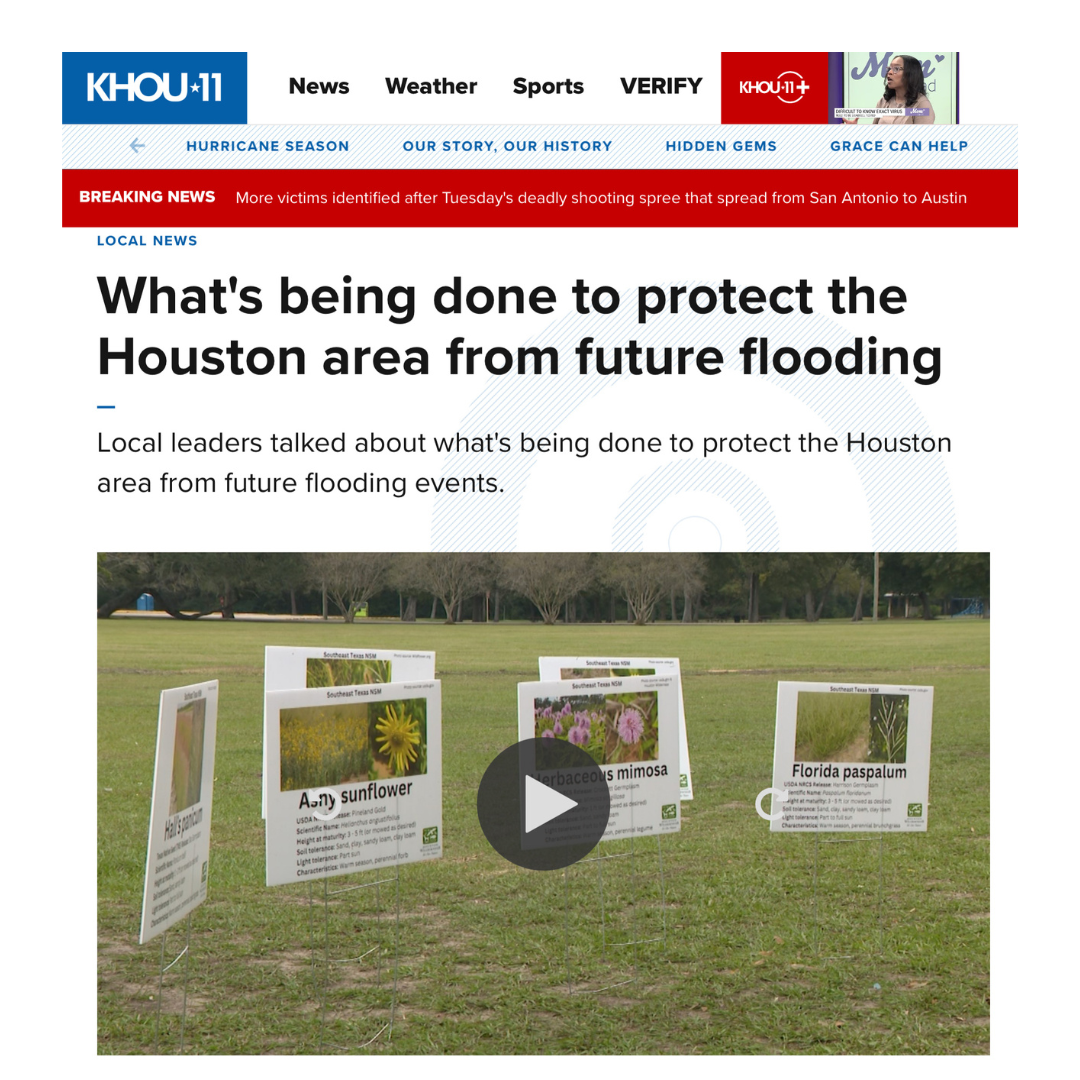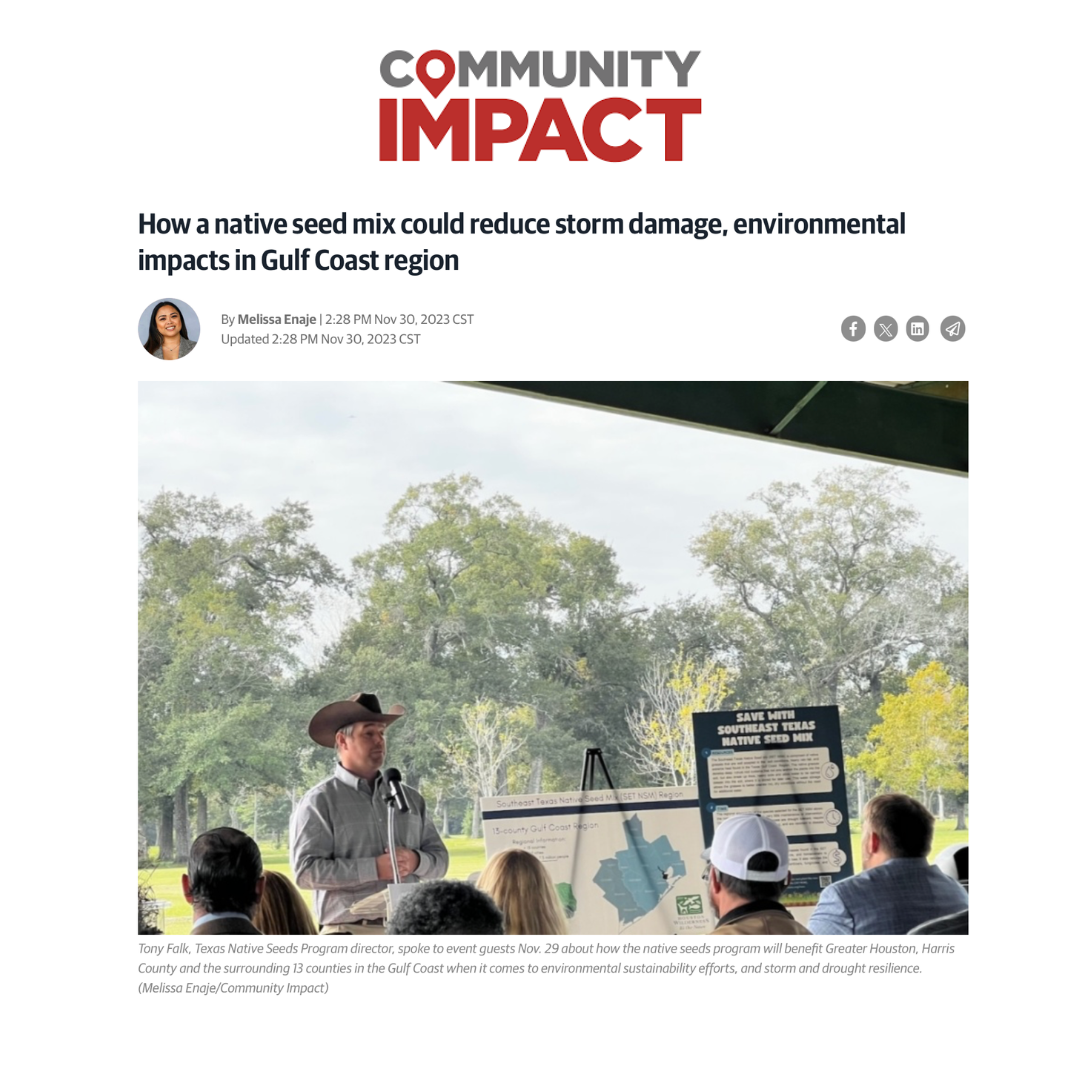HOUSTON WILDERNESS works with a broad-based alliance of business, environmental and government interests to protect and promote the 10 diverse ecoregions of the 13+ county area around Houston, Galveston Bay, and the Gulf of Mexico, including coastal prairies, forests, wetlands, and waterways.
Houston Wilderness connects people to the 10 ecoregions in multiple counties around Greater Houston through large-scale environmental policy initiatives, such as facilitation of key programs including: 1) an 8-county Gulf-Houston Regional Conservation Plan, 2) Super Trees for Sustainability Initiative, 3) Houston Ship Channel TREES, 4) Riverine Targeted-Use of Buyouts programs, and 5) the Collaborative Grant Organizing Program – all stakeholders are at the table and collaborative solutions are supported and implemented.
Slate of Initiatives:
Gulf-Houston Regional Conservation Plan (Gulf-Houston RCP) – facilitated by Houston Wilderness, the Gulf-Houston RCP is a long-term collaborative of environmental, business, and governmental entities working together to implement an ecosystem continuity and connectivity plan for the Gulf-Houston region through implementation of three key goals for enhanced resilience and nature-based infrastructure.
Ecoregions Affected: All 10 ecoregions
Ecosystem Services Enhanced/Utilized: Air & Water Quality, Water Absorption (flood abatement), Carbon Sequestration, Wildlife Habitat, Urban Heat Island Reduction, Ecotourism, Erosion Control, Energy savings
Super Trees for Sustainability Initiative - a multi-year, large-scale native tree planting collaborative facilitated by HW that incorporates the 25-mile Houston Ship Channel (HSC) TREES Program, the multi-county Riverine Targeted-Use-ofBuyouts (TUBs) Program, and targeted urban forestry projects in communities around the 13+ county region to enhance biodiversity and reduce health risks associated with urban heat, air and water pollution and flooding.
Ecoregions Affected: All 10 ecoregions
Ecosystem Services Enhanced/Utilized: Air & Water Quality, Carbon Sequestration, Water Absorption, Urban Heat
Collaborative Grant-Organizing (CGO) Program – serving regional stakeholders and network partners by facilitating informative meetings to discuss a multitude of advancements in nature-based infrastructure and/or environmental enhancements. These discussions often lead to development of regional initiatives with multi-partner federal/state grant funding proposals and awards for the enhancement of targeted environmental risks and stressors, such as large-scale native vegetation and reforestation.
Ecoregions Affected: Bayou Wilderness, Coastal Marshes, Estuaries & Bays, Post Oak Savannah, Prairie Systems Ecosystem Services Enhanced/Utilized: Air & Water Quality, Water Absorption (flood abatement), Carbon Sequestration, Wildlife Habitat, Urban Heat Island Reduction, Ecotourism, Erosion Control, Energy Savings
Houston Ship Channel TREES (HSC TREES) Program - Beginning in 2020, a 10-year collaborative program, facilitated by HW in collaboration with Economic Port Alliance, Houston Health Department, Buffalo Bayou Partnership and multiple municipalities and private business along the Houston Ship Channel that is focused on enhanced ecosystem services and resiliency through targeted large-scale native Super Tree species plantings along the 25 miles of the Houston Ship Channel, use of the 14 targeted Super Trees species (see more at: www.houstonwilderness.org/resources-for-native-supertrees-and-hsc-trees-program). The goal is 1 million planted native Super Trees by 2030.
Riverine Targeted-Use-of-Buyouts (Riverine TUBs) Program - The pioneering Riverine Targeted Use of Buyouts (Riverine TUBs) Program is an innovative approach to coastal resilience and hazard mitigation through a long-term strategy for habitually flooded properties to be 1) purchased by respective regional counties or municipalities, 2) held by the county or municipality - with maintenance/enhancement MOUs with community partners or transferred to a state agency or NGO for fee-simple ownership, and 3) enhanced with native bioswales, large-scale native trees/plants, replaced coastal wetlands, and other types of nature-based infrastructure techniques
BOTH PROGRAMS:
Ecoregions Affected: Bayou Wilderness (Riparian), Estuaries & Bays, Gulf of Mexico
Ecosystem Services Enhanced/Utilized: Air & Water Quality, Water Absorption (flood abatement), Carbon Sequestration, Wildlife Habitat, Erosion Control, Urban Heat, EJ Community enhancements
Access & Advocacy Program – providing problem-solving assistance and facilitation on various environmental policy issues that benefit various parts of the seven land-based and three water-based eco-regions, through informational meetings, short-term initiatives and communications on “environmental issues of the day,” such as regional wildlife assessments, EJ community needs, etc.
Great Green Quest (GGQ) – distributing thousands of our Wilderness Passports to regional public and private schools in various school districts every year in late May as schools prepare to release students for the summer. The passport, in both English and Spanish provides detailed site-specific information on all the public outdoor places in the 15+ county area, divided up by ecoregion.
Ecoregions Affected: All 10 ecoregions
HW Published Resources:
Ecosystem Services (ES) Primer, 2nd Edition – The HW ES Primer for Greater Gulf-Houston Region, A Six-Step Guide for making nature-based infrastructure decisions based on the benefits and values of multiple Ecosystem Services, and related slide presentation, discusses ways for decision-makers to determine ES benefits and values using different established study/valuation methods depending on targeted infrastructure/project goals. HW staff speak regularly at environmental conferences on the region’s ecological assets & case studies.
Regional Large-Scale Native Tree Planting Manual - Created by the Tree Strategy Implementation Group (TSIG) to educate decision-makers and the general public on the BMPs of large-scale native tree plantings, targeting specific native tree species based on location and ecosystem services needed for the Resilient Houston Plan's 4.6 Million Trees by 2030 Goal.
Published Journal paper - As part of the Super Trees for Sustainability Initiative and in collaboration with a publicprivate partnership (PPP), HW created a framework to develop native tree planting programs that capitalize on three key components.Hopkins, L. P., January-Bevers, D. J., Caton, E. K., & Campos, L. A. (2021). A simple tree planting framework to improve climate, air pollution, health, and urban heat in vulnerable locations using non-traditional partners. Plants, People, Planet,1–15. 10245. https://doi.org/10.1002/ppp3.10245
Tx MFS Step-by-Step Guide – Designed by HW for use by anyone interested in creating and maintaining pollinator habitat in Texas, the Guide provides users with an easy to follow pollinator habitat creation process and resource guide for obtaining plants and other materials, based on regional locations around the State of Texas.
Wilderness Passport – Houston Wilderness has created three specialized versions of its Wilderness Passport: a Family Passport designed for parents and children to explore the outdoors together.
